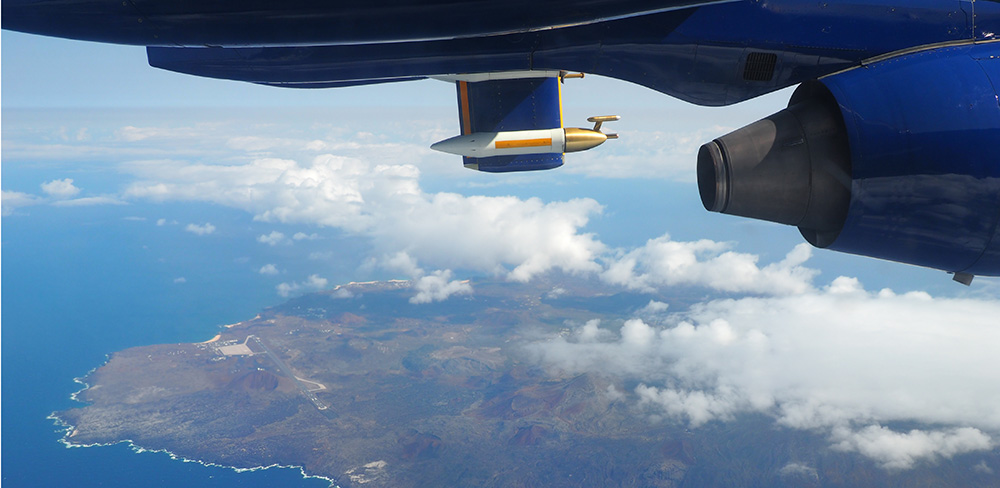
The Facility for Airborne Atmospheric Measurements (FAAM) spent August 2017 measuring biomass aerosol on Ascension Island, a remote island in the Atlantic Ocean, which is a hotspot for regional biomass burning aerosols released from the African Continent.
Ascension Island is around 1000 miles off the coast of Africa in a sub-tropical region where there are semi-permanent low-level clouds, and this makes the area a natural laboratory for studying the range of interactions that take place between aerosols, clouds and radiation.
Biomass burning aerosols are small particles that are released when organic matter is burned, such as when forests are burned for agriculture, wood or peat are burned for fuel, or agricultural waste is burned.
Throughout August 2017, the aircraft took measurements of aerosols and clouds in support of the Cloud and Aerosols Radiative Impact and Forcing (CLARIFY) field campaign. The project aims to measure and understand the physical properties of the aerosols and the atmosphere in the South East Atlantic, and by doing so it will contribute to a better overall understanding of global climate and weather systems.
CLARIFY is a major consortium programme consisting of 5 UK universities (Exeter, Oxford, Leeds, Manchester and Reading) with project partners from the UK Met Office, European universities and research institutes, the US NSF ONFIRE (ObservatioNs of Fires Impact on the southeast Atlantic Region) and US NASA ORACLES (ObseRvations of Aerosols above CLouds and their interactions).
